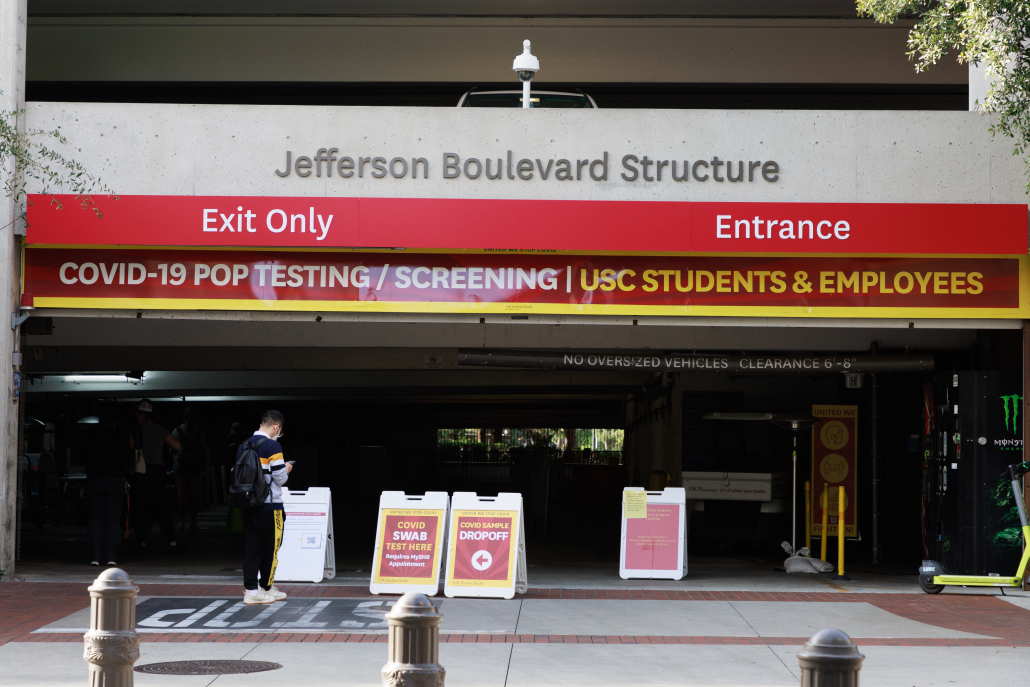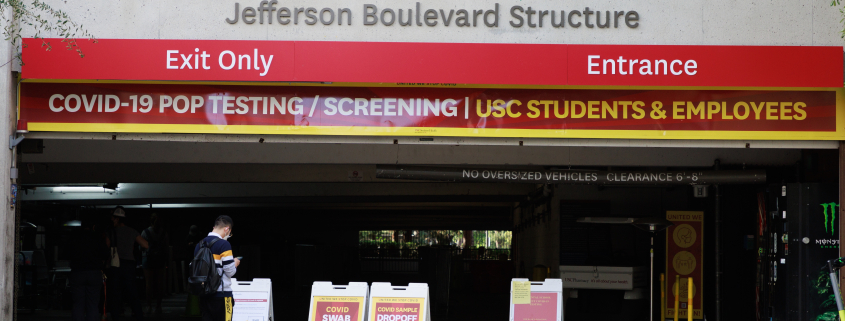Student Health introduces new cleaning procedures

As students left dorm rooms Wednesday and seniors became alumni Friday, the University and USC Student Health turned their focus to ensuring campus facilities are clean and safe for summer use. Cleaning procedures for on-campus spaces, including classrooms and USC Housing facilities, will emphasize environmental control of coronavirus infections. The University has also reprioritized improving air quality over surface cleaning, Chief Student Health Officer Dr. Sarah Van Orman said during a briefing with the Daily Trojan Thursday.
Among other summer programs and camps, the University Park Campus will host a four-week for-credit program for high school students from June 19 to July 16. Student Health will monitor the cleaning of facilities to be used for summer programming.
Van Orman explained that the coronavirus can be transmitted by surfaces, a process formally called fomite-mediated transmission, but this is not the most common way infection occurs. It’s far more challenging, she said, to tackle aerosol transmission.
“The most important thing is to focus on it from an environmental control standpoint rather than surfaces,” Van Orman said. “So, routine cleaning of surfaces will continue, but, more importantly, we will continue these heightened efforts around maintaining our indoor air quality.”
Van Orman said that the facilities team has upgraded air filters on campus and increased the frequency of their replacement. The “heightened air quality measures” will be implemented throughout the summer and for the foreseeable future, she said.
Student Health observed rising coronavirus cases on campus over the past several weeks, but the infection rate — 8% for students and 3% among staff — is lower than during the winter, when positivity rates climbed to 14.79% among students and 12.48% among staff amid the peak of the Omicron variant surge in January. Van Orman said the University will continue to observe Los Angeles County coronavirus restrictions to determine the necessity of additional mitigation measures in August, when students are set to return for the fall 2022 semester.
“For USC, how we make decisions in terms of policy is both based on the evolving research and science … but we also balance that with what our local public health is both recommending and requiring,” Van Orman said. “So we’re always going to do what public health requires.”
As people prepare to travel home, it’s most important that they make sure not to carry and spread the coronavirus with them to their destinations, Van Orman said. Regardless of whether they’re having symptoms, Student Health highly recommends that individuals monitor themselves and get tested accordingly. Testing is no longer available on Saturdays but will resume with normal operating hours — 8:30 a.m. to 4:30 p.m. Monday to Thursday and 9:30 a.m. to 4:30 p.m. on Friday — throughout the summer.
Though the federal mask mandate was no longer enforced in airports nationwide starting May 3, Van Orman said the masking requirement was dropped based on a legal consideration, ignoring public health concerns. Travel hubs — such as airports, train stations and subways — are extremely high-risk environments, she said, and “everyone should be wearing a high-quality mask while they’re in those areas, whether it’s required or not.”
Student Health recommends the use of N95 or KN95 masks, which are available to all faculty, staff and students at no cost at the USC Bookstores.

